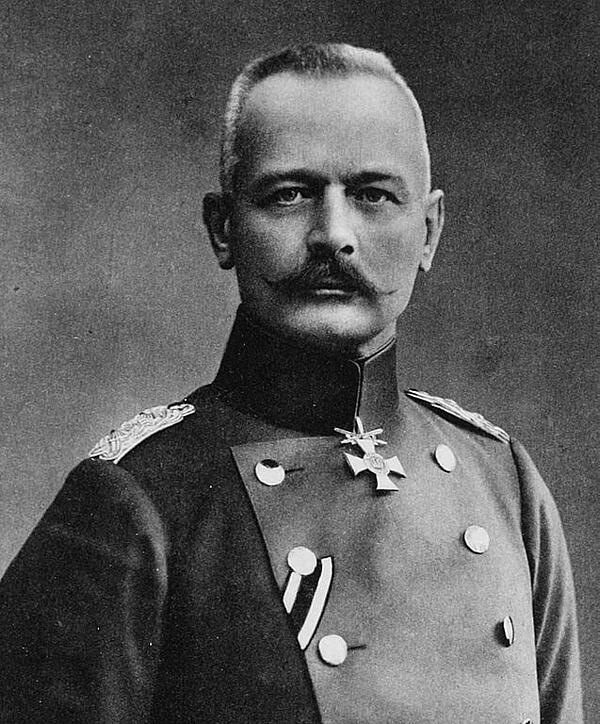Erich von Falkenhayn
Erich von Falkenhain was born in 1861 in West Prussia and adhered the strong military tradition by joining the army at a young age. After a strong start to his career, Falkenhayn served as a military instructor in China from 1899 and became a member of the German staff there during the Boxer Rebellion and participated in the relief of Beijing. Falkenhayn remained in China until 1903.
Falkenhayn returned to Germany to serve on the General Staff and in 1913 he was awarded for his hard work by being appointed Minister for War in Prussia, serving alongside von Molte. While von Molte was one of Germany’s most famous military men, the two failed to see eye to eye and fell out regularly.
While Germany initially saw success in World War One, a number of actions that followed were seen by Berlin as a disaster. This included the Battle of Marne and the failure of Germans to take Paris. Molte was held responsible for the these failures and Falkenhayn replaced him as Chief of Staff.

Falkenhayn was considered a strong military leader but was also cautious and unwilling to take risks. This was reflected in the 1915 campaign on the Eastern Front, when he dismissed a plan developed by General von Ludendorff that would have effectively destroyed the surrounding Russian army. Falkenhayn claimed the plan was too bold, leaving him feeling uneasy. As a result, he refused to give his support and instead backed a plan that would give the Russian army enough room to evade the German troops - but would also give Germany room to retreat.
While Ludendorff never forgive Falkenhayn, the latter had a strong belief that the war would be won on the Western Front and so focused on plans to launch a blow against the French by taking out their forts in Verdun. These particular forts had survived throughout 1914 in spite of German attack and by 1916 Falkenhayn felt it was time they were removed. He was particularly keen to do so as he felt it would rock the confidence of the French, potentially forcing them to surrender.
Writing to Kaiser Wilhelm II to convince him that his plan was destined to succeed, Falkenhayn said:
"The string in France has reached breaking point. A mass break-through - which in any case is beyond our means - is unnecessary. Within our reach there are objectives for the retention of which the French General Staff would be compelled to throw in every man they have. If they do so the forces of France will bleed to death."
The plan relied simply on the French troops being demolished, and while this was achieved, the German casualties were just as high. The German army never recovered from the battle and it wasn’t long before a finger was pointed at Falkenhayn. Ludendorff - who had still not forgotten the lack of support from Falkenhayn - was in favour with Wilhelm II at this stage in the war, and convinced him to demote him.
Falkenhayn was relieved of his post and set to the Transylvanian Front to command the IX German Army. He found success here, conquering the Romanian army and entering Bucharest in December 2016. However, he was later sent to Palestine to boost the German position there, failing in his task in October 1917.
In 1918, Falkenhayn was dismissed from his post and returned to Germany to retire. He died in 1922.
MLA Citation/Reference
"Erich von Falkenhayn". HistoryLearning.com. 2026. Web.
